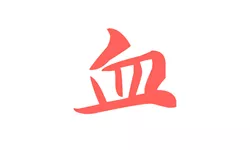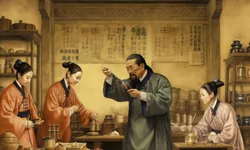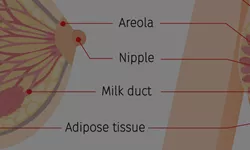There are few things as frustrating in the world for a nursing mother as an insufficient breast milk supply. It even makes many mothers feel stressed and depressed because they view themselves as unable to provide for their precious little one.
Chinese Medicine has an enormous amount of literature on low breastmilk supply, compiled over centuries of experimentation. Where Western Medicine has very few explanations for why some nursing mothers lack milk and others don't, Chinese Medicine has boiled it down to three main patterns of disharmony.
"What's a pattern of disharmony?", I hear you ask? Where Western Medicine has diseases, Chinese Medicine thinks that health conditions are caused by patterns of disharmony. In a nutshell Chinese Medicine views the body as a system, not a sum of isolated parts. A pattern is when that system is disrupted, causing multiple signs and symptoms of the failure body-wide. Patterns are often related to a failure of the Organs (different from Western Medicine organs) or a lack or excess of our vital substances (like Qi, Blood, etc.). If you wish to know more about the origins of diseases and their diagnosis in Chinese Medicine, you can read our excellent article about it.
Now, without further due, let's look at the three patterns that can cause low breast milk supply and what you can do to cure these patterns.
1) Low milk supply because you have Blood and Qi Deficiency
Blood Deficiency and Qi Deficiency are extremely common problems to have for mothers who recently gave birth. The reason is simple: the act of giving birth makes you lose a lot of Blood and Qi.
Qi and Blood are the main ingredients of all Body Fluids, which include breast milk. Therefore, Qi and Blood Deficiency will naturally lead to very little or no breast milk after delivering the baby.
It's such a common issue that in China there is a 28-day period after birth called "Yuezi" when the mum is meant to rest in bed and do nothing in order to restore her Blood and Qi levels. She's also fed traditional Qi and Blood boosting dishes such as fish or chicken soup mixed with Chinese herbs.
Signs and symptoms that you may have Blood and Qi Deficiency can include: fatigue, dry skin, pale face, pale lips, hair loss, watery breastmilk, poor appetite, a spontaneous flow of breastmilk and the absence of feeling of distention in the breasts (i.e. they don't feel full).
Getting a lot of rest and eating nourishing foods is extremely important to restore Qi and Blood. Foods that nourish Blood are especially important like meats (especially red meats), fish and grains. If the mother is vegetarian, she should pay great care and attention to eating enough protein of vegetable origin.

Milk Boost Tea contains many herbs designed to boost Qi and Blood
Milk Boost Tea is an excellent herbal formula for mothers who suffer from Qi and Blood Deficiency since it contains many herbs that supply Qi or Blood such as King solomon's seal root (Huang Jin), Yam (Shan Yao), Dong quai (Dang Gui) and Longan (Long Yan Rou). King solomon's seal root and Yam are used to boost Qi while Dong quai and Longan are to nourish Blood.
2) Low milk supply because you have Liver Qi Stagnation
Liver Qi Stagnation is an issue where Qi gets blocked in the Liver and cannot flow freely to the breasts.
This has a direct effect on milk supply because the Liver is directly connected to the nipples via the Liver Channel.
Signs and symptoms that you may have Liver Qi Stagnation can include: a depressed and irritable mood, breast pain, breast lumps and hardness, skin cracks around the breast, thick breast milk, a feeling of distention in the upper abdomen and below the diaphragm and a dark nipple color.
Why do some new mums suffer from Liver Qi Stagnation? A key cause for the pattern is emotional stress. Having a newborn is nothing if not stressful: new habits to make, lack of sleep, seeing one's entire life totally transformed, it all takes a toll! And there is often a vicious circle at play with the low milk supply situation: new mums stress about this, which makes the issue worse.
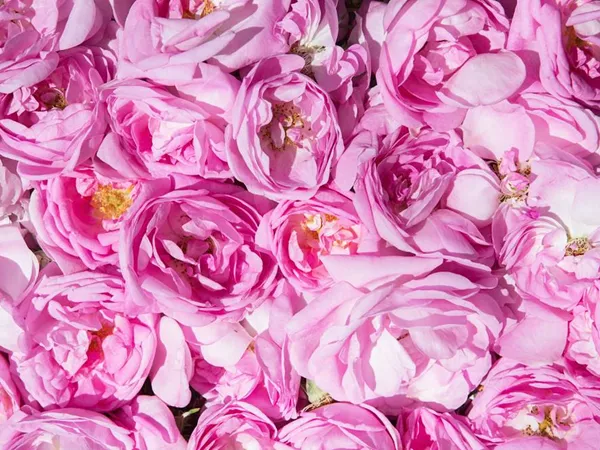
Rose flowers is a Chinese Medicine ingredient that helps with Liver Qi Stagnation
To deal with low lactation due to Liver Qi Stagnation, one needs to drink herbal medicine that targets the Liver and promote Qi movement. Only when the Stagnation is removed from the Liver Channel that connects to the breasts can the new mum get her milk supply back on track.
Milk Boost Tea is an ideal herbal formula to tackle this pattern as it contains many herbs that promote Qi movement such as Flowering quince fruit (Mu Gua) or Rose flower (Me Gui Hua). Both herbs target the Liver.
3) Low milk supply because you have Phlegm
Phlegm in Chinese Medicine is quite a different concept from what we know as phlegm in Western Medicine.
Essentially it's an accumulation of Body Fluids that have hardened. It typically forms over a long period of time and it's quite difficult to get rid off.
The type of Phlegm that can cause a low breast milk supply is when it accumulates in the Stomach and the Spleen. The accumulated Phlegm impairs the Stomach's function of ripening and rotting food as well as the Spleen's function of transforming and absorbing food. This leads to a situation where those Organs do not properly extract nutrition out of what we eat and drink, damaging the body's ability to replenish Qi and Blood. In turn, since Qi and Blood are the base ingredients of breast milk, a lack of those elements leads to low milk supply.
Signs and symptoms that you may have Phlegm in the Spleen and Stomach can include: fatigue, being overweight, a bad breath, watery breastmilk, a low metabolism, a thick tongue coating and the absence of feeling of distention in the breasts (i.e. they don't feel full).
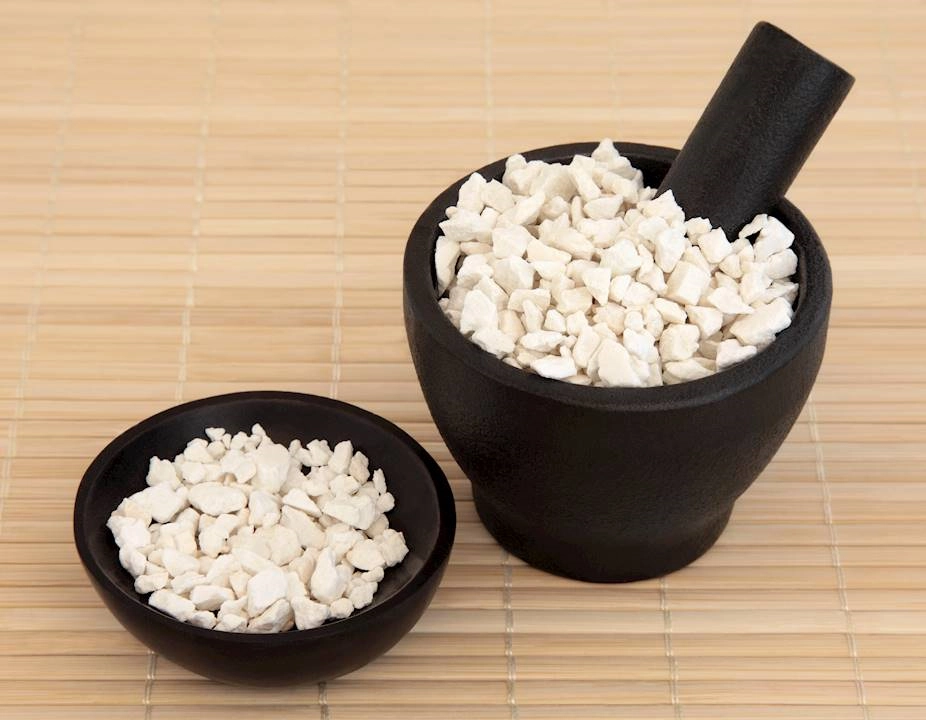
Poria-cocos mushrooms are a key Chinese herb to fight Phlegm
Out of the three patterns that cause low breast milk supply, Phlegm is the most difficult one to deal with and it requests the most amount of time to resolve. It it normal because Phlegm often accumulates over a long period of time.
Milk Boost Tea is again a great herbal formula to treat Phlegm because it contains several ingredients for this purpose, such as Poria-cocos mushrooms (Fu Ling) and Amomum Fruit (Sha Ren).
Article tags: Breastfeeding and maternity Chinese herbal medicine

